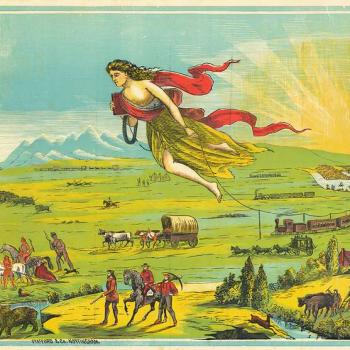This intense love of country defines Americans and, compared to many, sets us apart. A 2004 study of 33 countries by the National Opinion Research Center at the University of Chicago ranked the United States first in national pride. You might think that this powerful allegiance — what I and no doubt millions of others call a religion — would bring us together. Often it does. But on this July Fourth, we face a disturbing paradox: Our love of country increasingly divides us.
Our national debates now transcend disputes over this or that spending program or tax and have become — in the minds of the combatants — a climactic struggle for the nature and soul of America. One side is allegedly bent on inserting government into every aspect of our lives and suffocating individual responsibility and effort. The other is supposedly beholden to the rich, committed to “survival of the fittest” and indifferent to everyone else.
If you believe these are the stakes — and that defeat would extinguish America’s most valuable and virtuous aspects — then the other side is to be despised and demolished. Your very love of country impels you to extremes of rhetoric and belief. It nudges you, increasingly, to hate the other side.
The backdrop to this struggle is long-standing. As Alexis de Tocqueville noted, Americans venerate both liberty and equality. Our entire history involves this tension between preserving freedom and promoting equality. If you are defending either, you naturally think that you are the legitimate heir of the country’s core beliefs.
In a democracy, de Tocqueville argued, Americans would ultimately favor equality over freedom, because its material benefits are more immediate and tangible. Not so, countered the late political scientist James Q. Wilson. Americans strongly value freedom, far more than do citizens of any other democratic country, he argued.
There’s plenty of evidence he is right. A recent Pew poll asked people to pick between “freedom to pursue life’s goals without state interference” and the “state guarantees nobody is in need.” Americans selected freedom 58 percent to 35 percent. European responses were reversed: Germany’s 36 percent to 62 percent was typical. By wide margins compared with Europeans, Americans believe that “success in life” is determined by individual effort and not by outside forces. Yet, in their voting habits, Americans often prefer security.
The inconsistencies and contradictions won’t soon vanish. But in today’s politically poisoned climate, righteousness is at a premium and historical reality at a discount. Each side, whether “liberal” or “conservative,” Republican or Democrat, behaves as if it has a monopoly on historical truth. The fear that the existence of their version of America is threatened sows discord and explains why love of country has become a double-edged sword, dividing us when it might unite.
via Is the U.S. a land of liberty or equality? – The Washington Post.
The American ideal has always been BOTH liberty and equality. I don’t think that equality ever was construed to mean equality of income. Rather, it had to do with social equality. Social classes existed, but they were not supposed to bring special privileges or a sense of superiority. Both sides of these debates today are arguably falling short here, with the cult of wealth on the one hand and the cult of the cultural elites on the other (which are not the same thing). But what do you think of Samuelson’s analysis?











